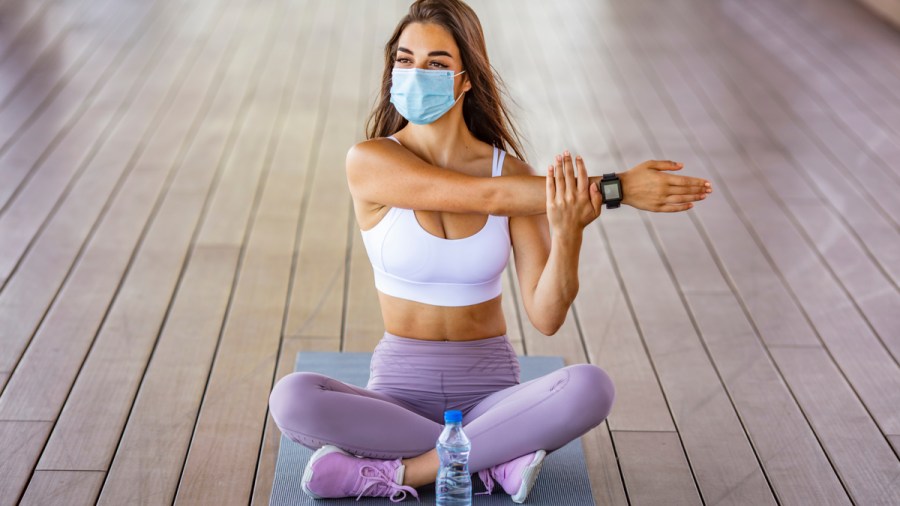Exercise can build strength and help fight disease – so why do so many fitness fans get ill? We’ve rounded up some expert advice on how to exercise to support your immune system. Plus, we’ve got some top tips on returning to fitness after having the Covid-19 vaccine or coronavirus infection…
Will exercise improve my immune defence?
With gym doors open and sports clubs welcoming members back, you may be wondering whether it’s safe to attend exercise sessions with others. But, keeping fit could be a really good way to bolster your immune defence. Indeed, evidence supports physical activity as a preventative measrue against severe Covid-19 infection. The study published in the British Journal of Sports Medicine shows that patients who had Covid-19 and had been consistently inactive during the previous two years were more likely to be admitted to hospital, to require intensive care, and to die than were patients who had consitently met physical activity guidelines.
‘Exercise boosts your circulation so that millions of white blood cells enter your blood stream. This enhances your body’s surveillance so it can better detect harmful microorganisms,’ explains Professor Michael Gleeson, Emeritus Professor of Exercise Biochemistry at Loughborough University, and the author of Eat, Move, Sleep, Repeat.
Exercise also has an anti-inflammatory effect. ‘Another benefit of regular exercise and being reasonably fit is that it helps to keep us lean by burning calories. Most importantly, it dampens down inflammation. This is the thing that can generate severe health problems during Covid-19 infection,’ adds Gleeson. ‘In contrast, if you’re sedentary and overweight, your adipose (fat) tissue becomes inflamed and you develop what is called chronic low-grade inflammation. This primes your body to produce an excessive pro-inflammatory response to infection and tissue damage. That is just what you don’t want if you get infected with Covid-19.’
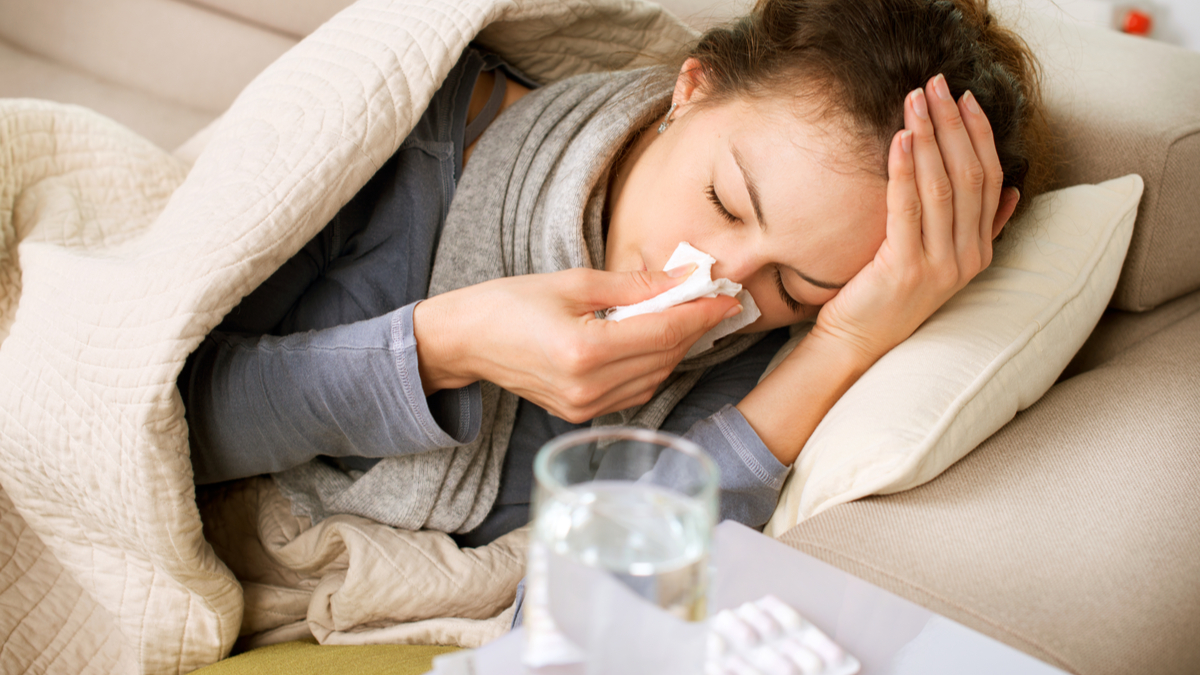
Exercise boosts your circulation so that millions of white blood cells enter your blood stream.
Can I exercise after having the covid vaccine or coronavirus?
If you’re returning to exercise after having has coronavirus or getting the vaccine, Professor Gleeson has these tips…
- Wait until any symptoms have disappeared before doing any exercise.
- Start with light exercise, keeping your heart rate below 120 beats per minute for 30-45 minutes.
- As you feel stronger, step up to moderate exercise, keeping your heart rate below 150 beats per minute for 30-60 minutes.
- Gently increase the volume by no more than 15 minutes per session.
- Stop immediately if any symptoms recur.
Could exercise have a negative effect on immunity?
While research confirms that regular moderate exercise can cut your risk of sickness in half, further studies show that strenuous exercise such as marathon training or excessive amounts of gym or cardio work can increase it. The main culprits? Upper respiratory tract infections (URTIs), such as coughs, colds, sinusitis and tonsillitis. The average adult has between two and four URTIs every year. These infections are prime causes of illness among seasoned athletes. In fact, an analysis of athletes at the 2011 World Championships in Daegu, South Korea, discovered that over 40 per cent of reported illnesses were upper respiratory tract infections, with those taking part in the marathon, 20K racewalk or 50K race walk most likely to fall victim to the sniffles. What’s the conclusion? Intense workouts, extreme training schedules and regular racing can suppress the body’s immune response.
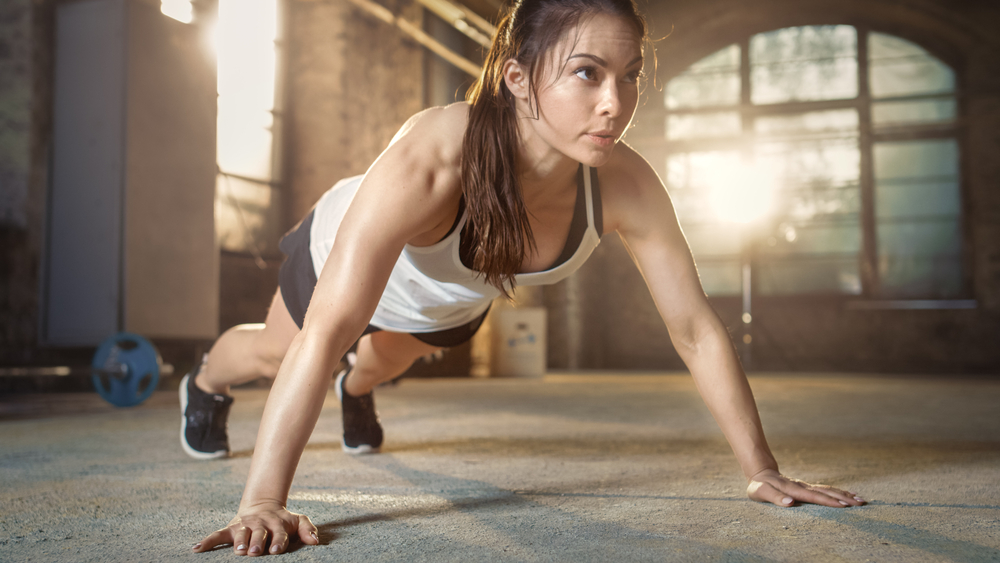
Intense workouts can suppress the body’s immune response.
‘If you regularly do moderate exercise without trouble – let’s say, cycle at 50 per cent of your aerobic capacity for an hour several times a week– it won’t have much of an impact on your immune system. In fact, it’s probably good for it,’ explains Gleeson. ‘But exercising for 90 minutes to two hours at an intensity above 70 per cent of your aerobic capacity will make you vulnerable to illness.’
Why do sweaty sessions chip away at your defences? Well, strenuous exercise, such as training for an endurance event, has been shown to surpress NK (natural killer cell) activity. And intense activity can be psychologically stressful, too.
How are hormones involved in fitness and immunity?
Mental strain increases levels of the stress hormone cortisol. When teamed with another exercise-induced stress hormone, adrenaline, it down regulates white blood cell function. This causes a decrease in immunity. ‘Physical stress, such as that experienced on a long run, can cause a one-off dip in the immune system that surpresses it for a day or so,’ says Gleeson. ‘But repeated or chronic psychological stress seems to impact the immune system the most.’
These effects are short-lived however. Indeed, experts note that your immune system will regain full strength after a brief window of time following race day. ‘In most cases, the window in which immunity is suppressed lasts for 24 hours,’ adds Gleeson. ‘But the time does vary because some cells are affected more than others.’ Endurance competitors, such as marathoners and triathletes, can expect every aspect of their immune system to take a blow for at least three to six hours after crossing the finish line, with most racers being vulnerable to infection for a day or two afterwards. During this time, it’s wise to support your system by getting plenty of sleep, eating well, resting and avoiding crowds.
Germ-proof your fitness plan
The formula for a healthy exercise regime isn’t clear cut. Here’s how to exercise to support your immune system…
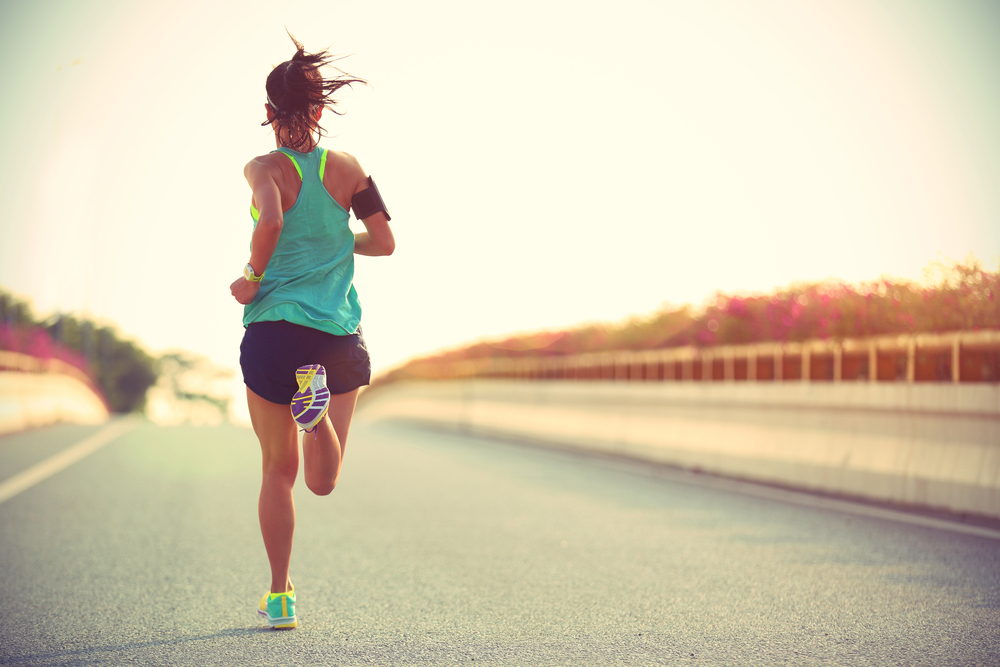
Top tips for outdoor exercisers
The body of a cyclist, runner or hiker relies heavily on carbohydrate fuel, which also plays a key role infuelling the immune system. ‘Ingesting about 40g of carbohydrate per hour of exercise helps maintain blood sugar levels and reduces stress hormones. This limits any depression of your immune function,’ explains Professor Gleeson. Athletes also need 1.2-1.6g of protein per kilogram of bodyweight per day, as opposed to the 1.2g recommended for the general population.
FIGHT BACK: Train, eat, sleep, repeat. If you don’t get enough sleep, you’ll always be vulnerable to illness. During the summer months, use blackout blinds and a thinner duvet to rest easy.

Support your immunity during team games
While intense and long workouts can depress immune function, netball, hockey and football games shouldn’t leave you reaching for the tissues. ‘Most team games are intermittent. That is, sometimes you’ll need to sprint and other times you’ll be walking or jogging. This seems to have less of an impact on immunity than doing continuous, high-intensity exercise,’ notes Gleeson. The bigger risk? Picking up an illness from infected teammates. A research review of literature in the Journal of the American Medical Association found that, of 38 reports of infections among competitive athletes, 24 viral, fungal and bacterial outbreaks were caused by person-to-person contact.
FIGHT BACK: Be smart. As much as possible, avoid contact with unwell teammates and don’t share drinks bottles, equipment or towels with them.
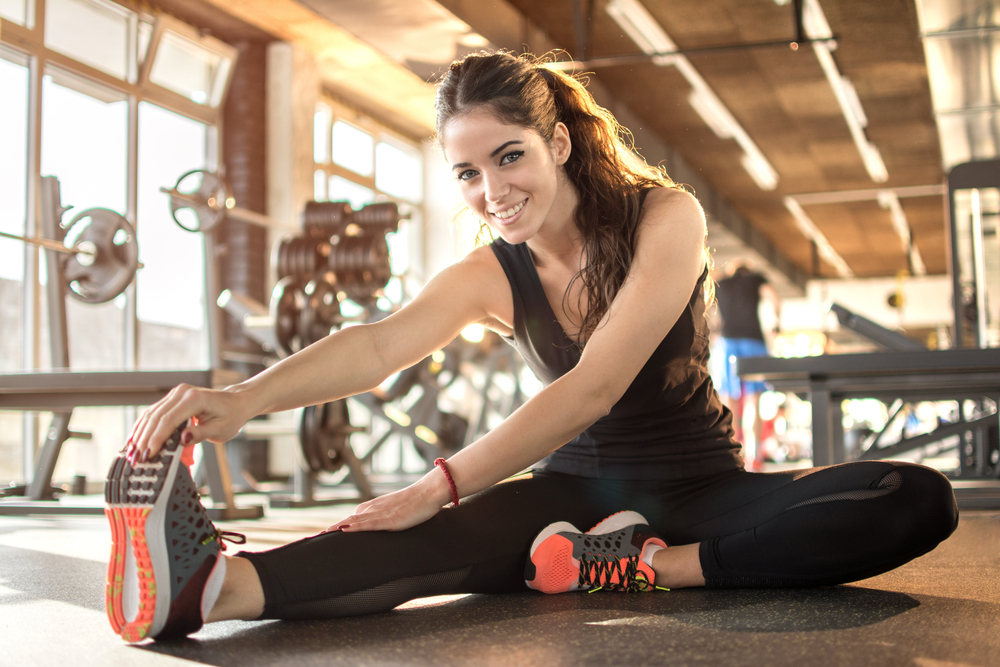
Immunity support for gym lovers
Science shows that even intense resistance work isn’t bad for immune function. A 1996 study at Tufts University in Boston found that exercisers following a rigorous weightlifting routine for 12 weeks experienced neither an improvement nor a decline of immune function. Why? Scientists suspect that the recovery between sets gives the immune system a boost. Poor gym etiquette, however, may put your health at risk. ‘Avoid coming into contact with potentially contagious objects like door handles. Never touch your eyes, nose or mouth when exercising. Laslty, always clean your sports kit when you get home,’ adds Gleeson.
FIGHT BACK: Wipe gym equipment before and after use. Don’t share kit or toiletries, and try to avoid contact with frequently touched areas such as door handles.

